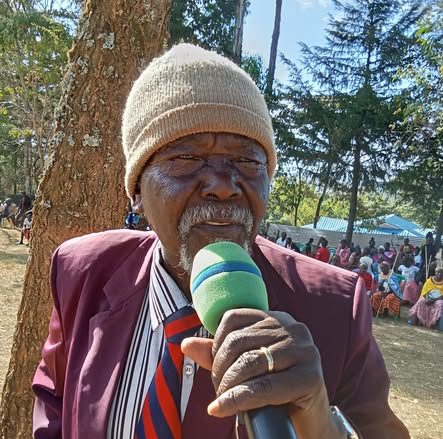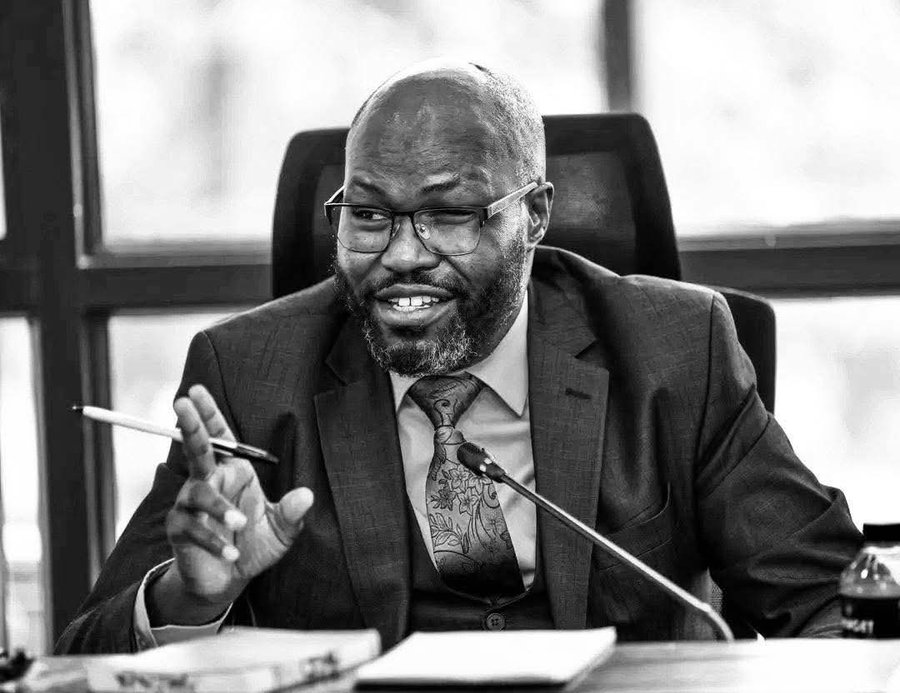By Fredrick Odiero
As a primary school classroom teacher, Charles Babu Karan knew he was predestined for great things, long before life’s journey sowed the seed that sprouted Kenya Primary Schools Heads Association (KEPSHA), which would along the way had to make hard decisions, like declining to endorse the late former president Mwai Kibaki.
Yet that apolitical stand is just a shadow of his tough hike to the foothills of success. Life offers opportunities to everyone equally, but only those who have the courage to take them head-on prosper.
That is how, against stiff opposition from both politicians and the Kenya National Union of Teachers, KNUT, they cracked the hard nut to convince them they meant no harm registering KEPSHA.
Fortunately, already there was big brother Kenya Secondary School Heads Association (KESSHA); so it wasn’t rocket science to make anyone understand their rationale.
But it was mystical to KNUT then. Suspicion had to take centre stage. When they unanimously refused to attend Kibaki’s endorsement in 2002 against the sweeping wave of change that threatened to trample underfoot anyone taking a neutral stand, it was all clear what they stood for.
Now as chairman of Kisumu County Public Service Board (PSB), we wanted to trace back his footprints to get a better understanding of the man and the roots of KEPSHA.
Being a risk taker, he explains that as a team of founder members, they took time to explain to the Union their need to have a professional lobby group for primary school heads along the thinking behind KESSHA.
Several meetings and caucuses later, KNUT bought the idea, having seen the need for a forum that will unite them as chief decision makers in their institutions and share challenges and ideas across the country.
“Actually, we ensured that KNUT understood our objectives since they were already working with a similar outfit KESSHA for secondary schools,” he said.
The scales tipped in their favour when the Union realized their forums would also make deliberate moves to campaign for KNUT and teacher Saccos membership.
And true to their pledge, membership to KNUT was boosted and that reduced possible tensions and increased trust between the two organizations.
Part of the team that laid this groundwork were retired former head teachers of Nairobi and Jamhuri Primary schools, the latter being the first National Chairman.
He said during those formative stages, membership was largely drawn from cities and towns like Nairobi, Kisumu, Mombasa and Eldoret, but later after a serious national campaign, they were able to spread their influence and presence into rural regions.
They did not want to stop there nonetheless, as they took their sensitization programmes across borders to Uganda and Tanzania through seminars and workshops in Kampala and Dar-es-Salaam.
Some of the major challenges they faced were the inability to spread the gospel across the country due to limited resources. They had to at times do the work that needed professional input themselves.
“I personally designed the logo and motto that is being used to date,” he said.
Others include bringing on board the Ministry of Education (MoE) and Teachers Service Commission (TSC) to appreciate the value they were adding to the education sector.
Their sources of funds were basically the leadership of KEPSHA and later from school activities. With these, they were able to open an office and duly register the organization with the Registrar of Societies.
“Our office duties were initially managed by top officials from their respective schools; for example, the chairman the late Mr. Waithaka was based at Jamhuri Primary School,” he said.
It is a story of the mustard seed. Today KEPSHA is able to hold annual conferences across the country like their counterpart KESSHA.
Asked how he evaluates his achievements in life, he points out that ambition will remain just a wish if one does not lift a foot to match towards it.
Diminutive in stature, he reflects the resilience of one not given to complacency as he is almost completing his doctorate degree. He is undertaking a Doctor of Philosophy (PhD) in Business Administration at the University of Nairobi (UoN).
He was born and brought up in Lela Kombura, Kadibo Division of Nyando Sub-county, Kisumu County.
He went to Lela Primary School before proceeding to St Mary’s High School, Yala, where he sat his ‘O Level’ examinations.
He could not proceed to ‘A Levels’ because he lacked school fees, opting instead to train as a P1 teacher at Machakos Teachers College.
The chairman, who is a no-nonsense kind of an administrator, says he was posted to the then Uasin Gishu District where he taught in many schools such as Uasin Gishu and Eldoret Union Primary schools.
He later went back to Kisumu and taught in many schools within the municipality, which rose to the top in national examinations under his charge.
He later enrolled for a UoN’s Bachelor of Education degree in 2002 and proceeded to teach at Xaverian High School, also within Kisumu Municipality.
Upon graduation, he did his Masters in Project Planning & Management at the same university when his mentor and employer, the then Senator Peter Anyang’ Nyong’o, advised him to upgrade.
Karan says he worked very closely with Nyong’o as personal assistant until he was elected governor in 2017, whereupon he was taken up to chair the County Public Service Board.
As chairman of the Board, Karan says they are tasked with recruiting both junior and senior staff, a role they must handle delicately as they balance many interests and purposes.
He is currently in the Boards of Management of various high schools, having served also as a member of the Truth Justice & Reconciliation Commission (TJRC) in charge of ten counties in the Western region.
Karan is a member of the Institute of Human Resource Management and has attended several professional conferences, seminars and workshops both locally and internationally.
He has published academic articles in internationally recognized journals on critical human resource issues.
All said and done, he says his happiness is derived from how they have been able to elevate ECDE teachers to permanent and pensionable terms.






